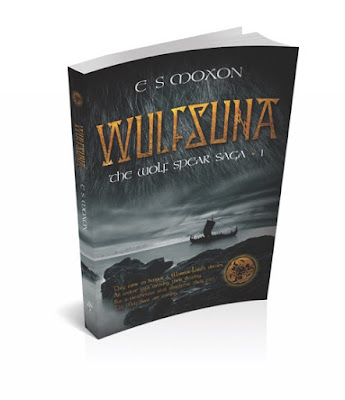Beginning any project can prove a
fearful experience for many; a perilous precipice of white expanse where no
words dare to fall. Toes curl, hair bristles on the back of necks and fingers
pause over keys. They envy those who freefall into the abyss and dream of the
day when chapters gush onto the page in a vomit of inspiration. Yes, writing is
a messy craft for some.
I recently wrote a blog on
keeping a writing ‘log’ after experiencing insecurities over the little time I
thought I was spending on my craft. It turned out these insecurities were
unfounded and other areas of my life had only appeared to have consumed my
writing time. Quite often doubts and insecurities arise when we are confronted
with what our own psyche views as a mammoth task.
Starting a new novel, entirely
undrafted or plotted in any way except for a title had shaken my confidence.
The ‘Blank Page Syndrome’ had crept in while I had been busy with daily work
and family routines, to undermine my ability to even begin! Goodness, it had
even cast doubts on whether I was doing any writing at all, about anything.
A few weeks into the log settled
those initial doubts. Then it was time to get to work on the fear of that
vacant page. Where did I begin? I read books, lots of books, all factual
research on various topics relating to the novel I hoped to write. As I made
notes on Druidry, equine history, Autism and the movement of Celtic peoples
after the departure of the Roman Empire from Britain, visions emerged. My
vacant page contained words, not of a story per se, but of scenarios.
Finding the roots of your story
is one way to chase away the Blank Page Syndrome. Once you set down roots, it
is hard to be uprooted as the trunk expands, branches spread and leaves grow
with your ideas. Soon these disparate scenarios contain characters, or at the
very least names or titles of the protagonists. They may not have faces or hair
colour, but they are saying things and moving around a landscape that is slowly
emerging, like a watercolour filtering over paper.
Soon you discover you are linking
these scenarios together and forming a jigsaw with them, slotting in new ideas
or moving them around. External factors or other characters appear to tip the
delicately balanced plot, sometimes even before it has completely formed and
you find the story spiralling into unknown, unplanned pastures.
 |
You have the beginnings of a book! |
- Have you ever suffered with the blank page syndrome? If so, how have you dealt with it?
- Are you a tight plotter, loose pantster or a little of both?
- If you have an idea do you stall it and pause to assess if it will be detrimental to the original plot, or run with it and see where it will lead?
- Do you throw out an idea if it doesn’t fit within the strict confines of the perfect story arc you created, or allow it to alter your story?
Writing as ‘E S Moxon’, Elaine's debut historical fiction adventure ‘WULFSUNA’ was published January 21st, 2015 and is the first in her Wolf Spear Saga series. She is currently writing her second novel, set once again in the Dark Ages of 5th Century Britain, where the legendary Saga ensures a Seer and one named 'Wolf Spear' are destined to meet. You can find out more about Elaine’s novels on her website or follow her on Twitter or Facebook.
Elaine lives in the Midlands with her family and their chocolate Labrador.
~ ~ ~
Blood, betrayal and brotherhood.
An ancient saga is weaving their destiny.
A treacherous rival threatens their fate.
A Seer's magic may be all that can save them.





No blank page for me, not without a serious outline to refer to!
ReplyDeleteI'm a fairly tight plotter although I always leave room for the unexpected. Characters (& story plans) have a way of taking off on their own business. And I'm very much a 'slotter' & not in any way a linear writer.
I always run with anything that shows up - unless its arrant nonsense! Which pretty much answers your final question too. I'm not sure the perfect story arc exists. It seems too contrived to me & leaves little room for poetic licence or creativity.
Nice post, Elaine! xXx
Thank you Carol. I also begin as a plotter, but then as you say, characters often run off on a tangent storyline or behave unexpectedly.
DeleteI feel it's good to evolve into the organic approach as the book expands creatively, but it helps knowing where you need to begin (even if, as in my case, it was the last scene of the book)!
I usually don't have this issue, but I always remind myself to keep it fun. If it's not fun, it's not worth it:)
ReplyDeleteThanks Mark. Yes, I must say it's not usually an issue for me either, but this particular project wasn't the original 'next' novel. As an unexpected idea formed I discovered I needed to go in another direction. This meant delaying an already drafted novel for a later date.
DeleteAnd I completely agree with you - it has to be fun! Finding the fun again was a major step forward for me and I'm now loving book 2, which is almost complete.
Keep up the fun!